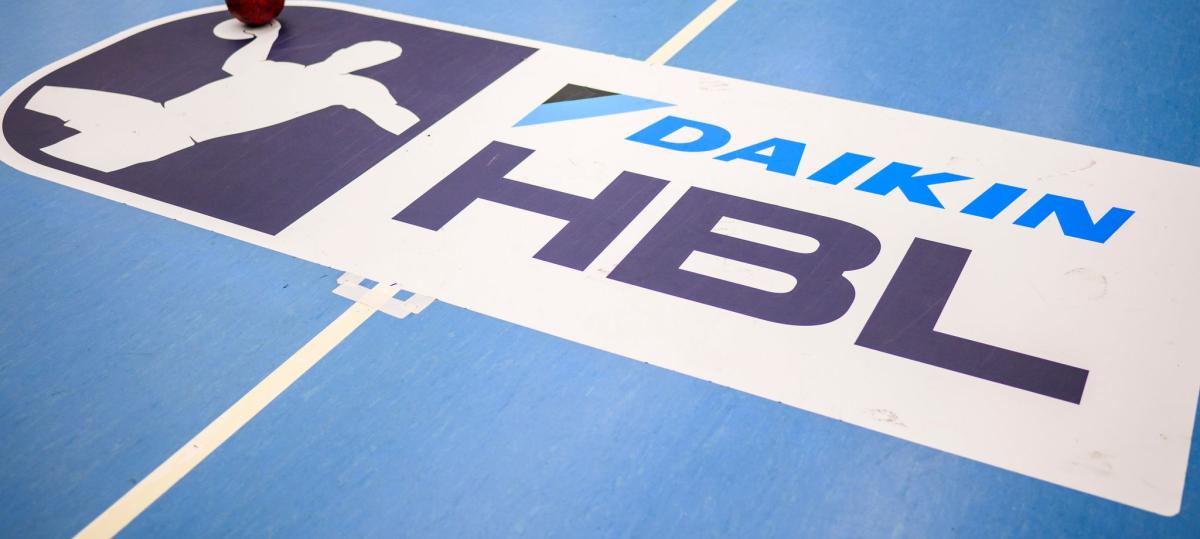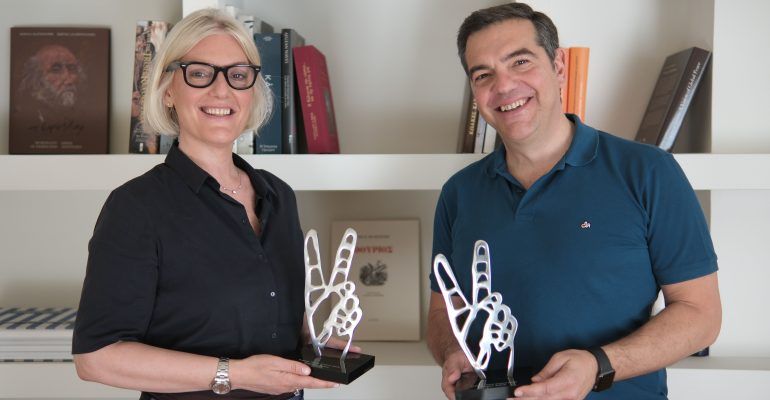The child of labor migrant may suddenly have left: ‘Education is not very important for some of the parents’
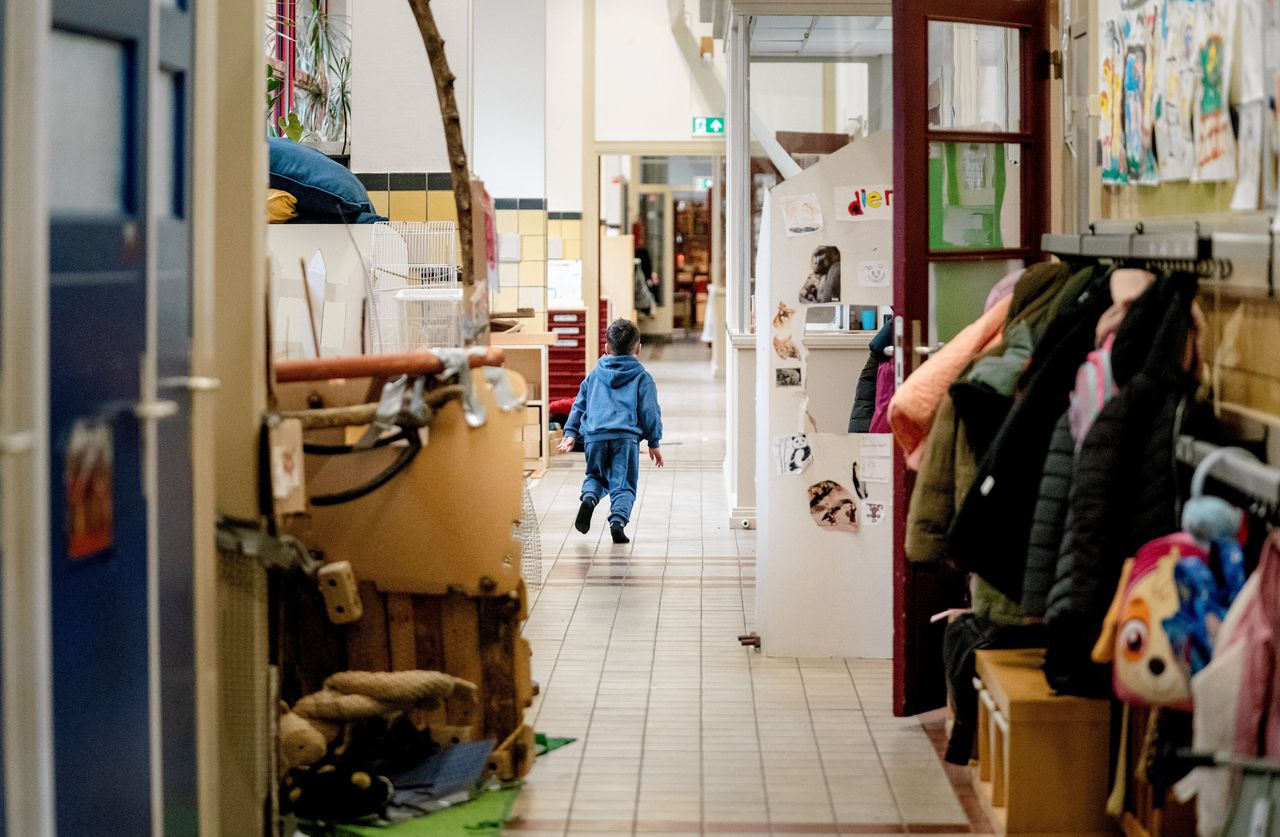
The boy is shy in class. He is ten years and new at this primary school, the Gelderlandschool in The Hague. His parents have just registered him, it is in the middle of the school year. The children clap and call ‘welcome’, but the boy does not yet know Dutch. Murie Halil puts an arm around his shoulders and guides him out of the class. She is the ‘bridge officer’ of the school, appointed to help parents and children who have not been living in the Netherlands for long. She speaks Turkish, Bulgarian, German and Dutch. The boy can understand her.
An estimated fifty thousand labor migrants from Eastern Europe live in The Hague. Sometimes they have come on their own, nowadays more and more with their partner or family. In some neighborhoods, their children form the majority of the student base at primary schools.
For example at the Gelderlandschool. Nine in ten children do not speak Dutch at home and almost half of the students are shorter than four years in the Netherlands. Their parents have often had little education. They have a passport from an EU country such as Bulgaria, Romania or Greece, but often speak Turkish.
How long they stay in the Netherlands is uncertain. If the work ends, the families return to their country of origin or travel on to a place where there is work. As long as they stay here, the school tries to teach the children as well as possible. The school is based on the assumption that they remain in the Netherlands and therefore gives priority to language education.
We sometimes see children of ten who have never been to school here
The parents at the Gelderlandschool work in greenhouses in the Westland, in distribution centers, slaughterhouses, security, cleaning or construction. Murie Halil: « In the morning at five o’clock they are picked up with a van, they come home late in the evening. The children stay behind, sometimes with their mother, sometimes alone. Then they come to school without having eaten. There is money for sandwiches at home, but nobody says to them: do you eat something? » The parents do not use after -school care, they prefer to arrange it among each other.
What the school encounters is that it is not self -evident for these labor migrants that children go to school. « For some of the parents, education is not very important, » says school director Hilde van der Geest, « Working is paramount. They think: I can’t read and write and I also earn my living? »
Homeless
The Gelderlandschool is located in Rustenburg-Oostbroek, a neighborhood that was built between 1920 and 1940 for the working middle class. There it is now a coming and going of Eastern European labor migrants, especially from Bulgaria. The neighborhood is only a temporary place to live for many residents and that can be seen. The low porch apartments make a neglected impression. The school director has families who live in such an apartment together with another family. « Whether they live in one room and are suddenly turned off. »
Van der Geest experienced a while ago that a family became homeless. « They spent a night with the children in the car. They had not come up with the idea to ask us for help. » She had called the family and said: drive to a hotel, I come there and pay for your room. « But they didn’t want that, the children now slept. » The next day, help was set in motion. The children came to school. « The teachers said about the oldest boy: we have noticed for a while that he is completely out. He has not picked up one new letter in the past month, his learning process stands still. »
She sometimes feels more social worker. It helps that, before she became a school director, she worked at the municipality for years. « As a result, I know the way to emergency services. But of course that has nothing to do with education. Fortunately I have a very good deputy director, who focuses on that. »
Illiterate
The Turkish-Bulgarian Murie Halil (44), who has been working at the Gelderlandschool in The Hague for two years now, knows what it is like to suddenly have to go to school in a foreign country without understanding the language. At the age of six she moved from Bulgaria with her parents to Germany. That was in the late 1980s, they left their country because the government tried to ‘bulge’ the Turkish -speaking minority. A few years later, when the situation improved, they returned. She grew up, did the German teacher training in Bulgaria, married and had children. Six years ago she left her country again, to build a better life with her family in the Netherlands.
They settled in The Hague. While her children went to the Gelderlandschool, she followed courses to learn Dutch. The school management noticed how quickly this mother picked up the language. In the parents’ council she took on the role of interpreter translator. She was asked if she didn’t want to do more. For example, she became a teacher supportor in the newcomers class, where children are placed who have been in the Netherlands for less than a year.
It is possible that a parent comes to ask: I want to work, where can I go?
Since this school year she has also been a day of bridges a day a week. Parents can ask her all their questions, even if they have nothing to do with education, she says. « It may be that a parent comes to ask: I want to work, where can I go? » She also points them to the road to Dutch language courses. If she can help the parents with these kinds of questions, the school team has more time to focus on teaching.
The bridge officer helps with registration at school and functions as an interpreter in consultation about children who need extra care, such as speech therapy or special education. « I try to explain the procedures to the parents. Then I will keep it as simple as possible. » What makes it difficult is that some parents do not see the importance of all that extra attention for their child. « We have a few families here where the parents are illiterate, they don’t have a high ambition, not even for their children. They are used to traveling to find work. If the boss says » I don’t need you anymore, « they leave the Netherlands again. »
/s3/static.nrc.nl/wp-content/uploads/2025/04/14120127/data130876882-18508f.jpg)

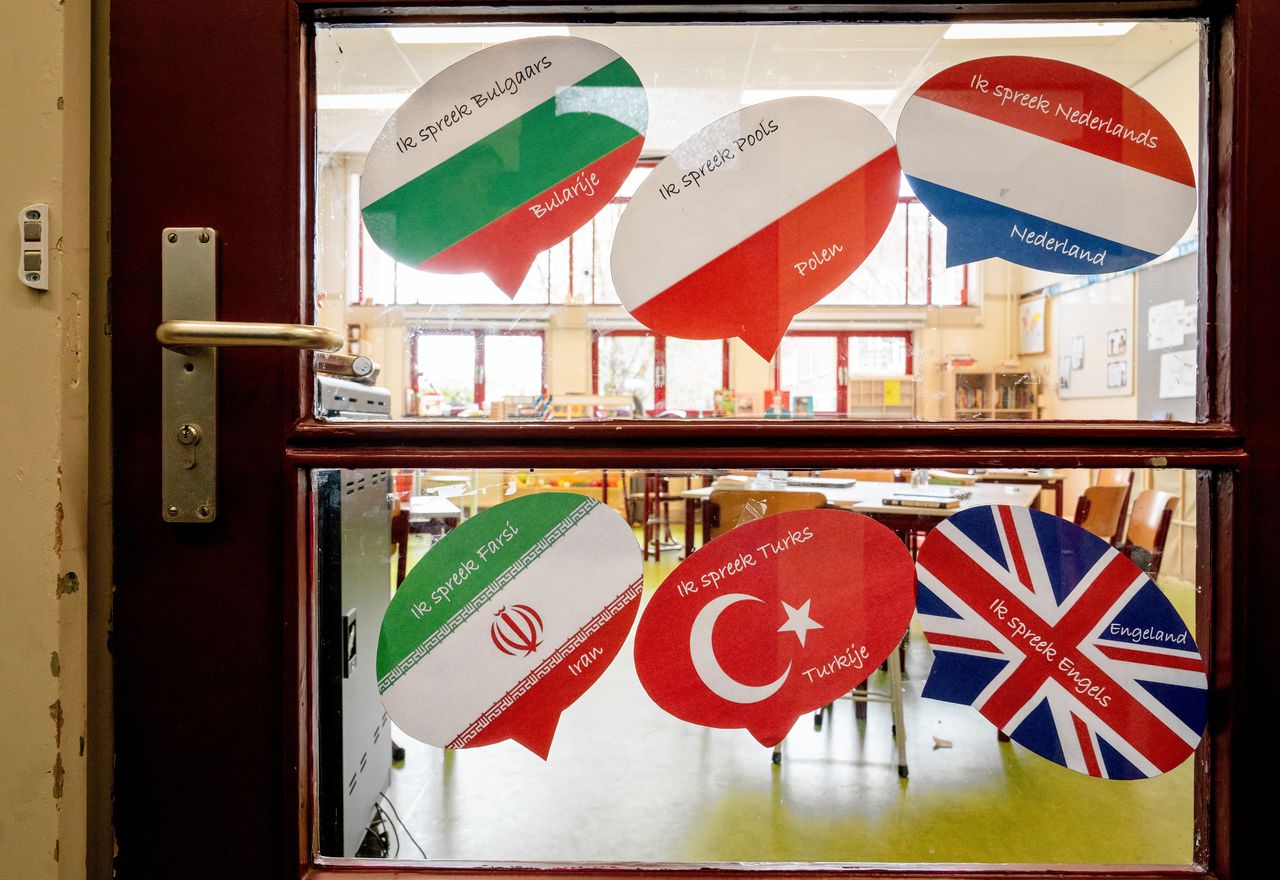
Photos Bart Maat
That means a lot of inflow and outflow of students for the school, says school director Van der Geest. The Gelderlandschool has around 260 students, and that number fluctuates. « After a summer vacation, children sometimes do not come back, without deregistration. Then we suddenly lose them. But it also happens that there are six, seven families at the same time who want to register their child. »
Book
Pupils who are only short in the Netherlands are placed in one of the two newcomers groups. « In Bulgaria, children are much older when they first go to school, » says Van der Geest. « We sometimes see children of ten who have never been to school here. We do our utmost to get these children up to level, but we have to give them time to land first. »
According to Lowan, the organization that supports the education of newcomers, children who do not yet speak Dutch need four years to get along well in education. « There is no time, » says Van der Geest. « They can stay in the newcomers group for a year, for a maximum of a year and a half, then they have to move on to a normal group. After such a short period, their knowledge of Dutch is still very limited. »
The financing of the newcomers groups provides the school management headaches. For an asylum seekers’ child, a school receives 12,000 euros per year, for other newcomers only 9,000 euros in the first year. Van der Geest: « We only have that last group, and then you will not get the financing around. By definition, you then make money to it. »
Because most students come to school without knowledge of Dutch or with a large language deficit, a lot is done to stimulate reading. Books are available in all classrooms and a library has been set up on the upper floor. In the classes there are cozy reading corners, with a bench, bean bags, large pillows and a blanket. The books also form the main teaching material at school.
/s3/static.nrc.nl/wp-content/uploads/2025/04/14120130/data130876885-5bdc81.jpg)
That emphasis on reading works, says Van der Geest. « Last year, 100 percent of the children reached the flow test in group 8 for Level 1F reading, the basic level that is expected at the end of primary school. And 75 percent also reached 2F, the level that is needed to be able to join society. » The school thus scored above average. Yet the school director is worried. « The Education Inspectorate expects even better results this year, while we notice that our target group is getting heavier. »
Subsidy
On paper, the Gelderlandschool seems to be increasingly becoming an average school, while the opposite is the case. That is because a lot of information about the families who live in the neighborhood are not known to the municipality, because they often do not register there. For that reason, the subsidy that the school receives to eliminate learning disadvantages has fallen over the past two years, from more than 3.5 tons in 2023 to just under 2 tons this year.
We have little trouble with the teacher shortage, that says something about the good atmosphere
Van der Geest points out that a school also gets less money for children from EU member states such as Bulgaria and Romania than for children from Turkish or Moroccan families. The idea behind this is that children from an EU country need less help to learn and integrate Dutch. But it is the other way around, says the school director. « Turkish and Moroccan families often live here for a few generations and the children usually speak Dutch. »
The Ministry of Education is aware that the calculation of the backlogs at schools with many Eastern European children is incorrect with reality. State Secretary Mariëlle Paul (VVD) has investigated whether there is a better way, but that will not lead to a different distribution of the subsidy before 2027.
Read also
‘Westland method’ ensures a grip on abuses around labor migrants. Why doesn’t the rest of the Netherlands follow?
Van der Geest wants to emphasize that – although many things are difficult at school – a lot is going well. Her team is committed to the children with heart and soul, she says. The teachers spend a lot of time making good and educational lessons. And they do their best to make all children feel at home. « We have little trouble with the teacher shortage, that says something about the good atmosphere. »
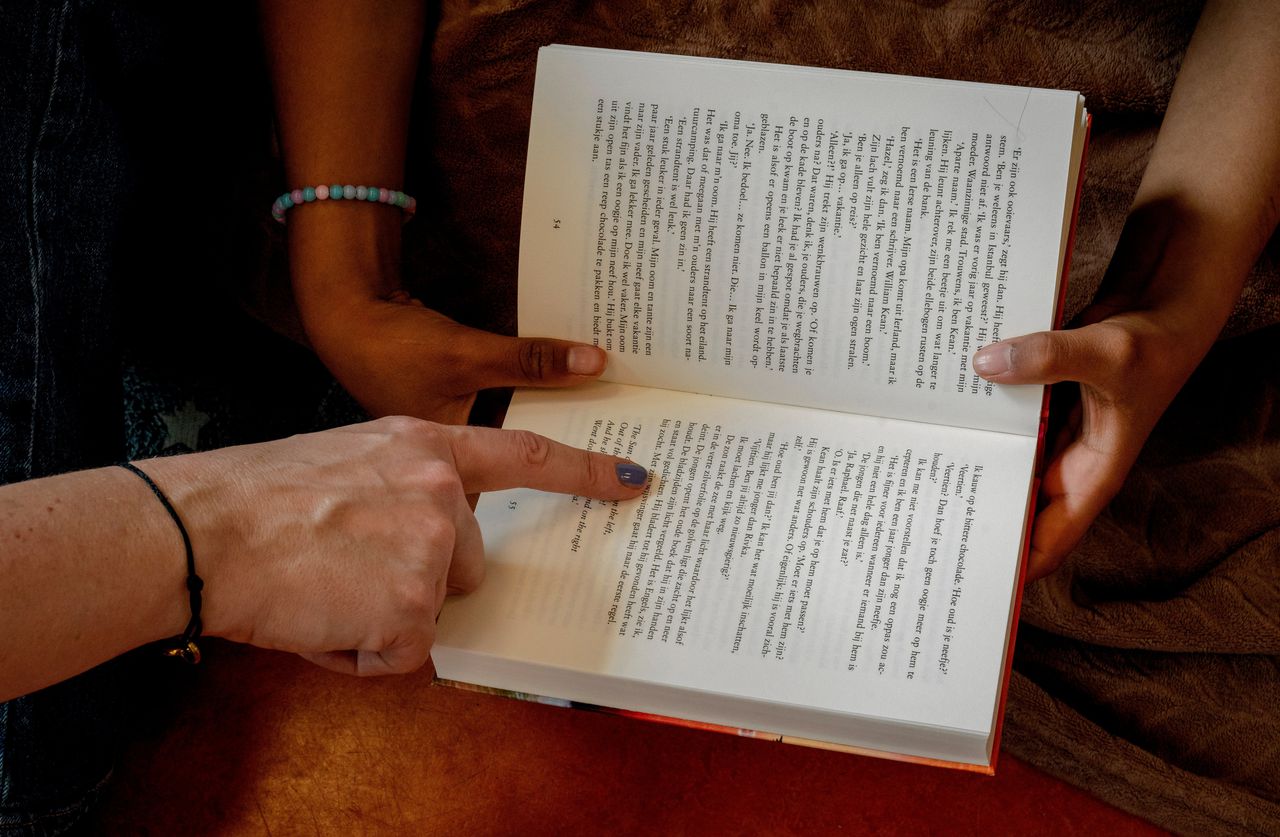
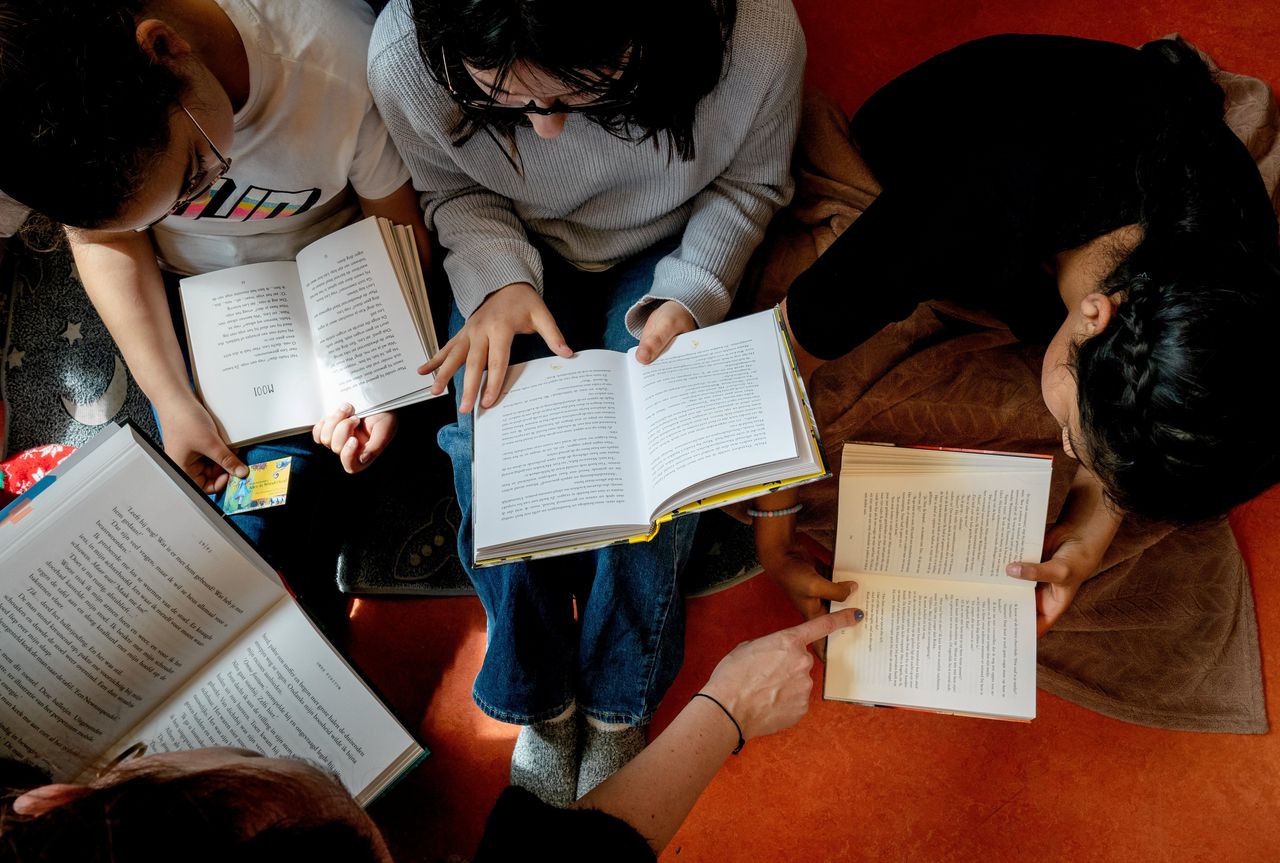
Photos Bart Maat

:format(webp)/s3/static.nrc.nl/wp-content/uploads/2025/03/13090213/data129305770-ca6eec.jpg)
/s3/static.nrc.nl/images/gn4/data133354271-8dc659.jpg)
:format(webp)/s3/static.nrc.nl/wp-content/uploads/2024/09/04085506/data120975205-8f5e99.jpg)
/s3/static.nrc.nl/images/gn4/data133355903-5bc084.jpg)



